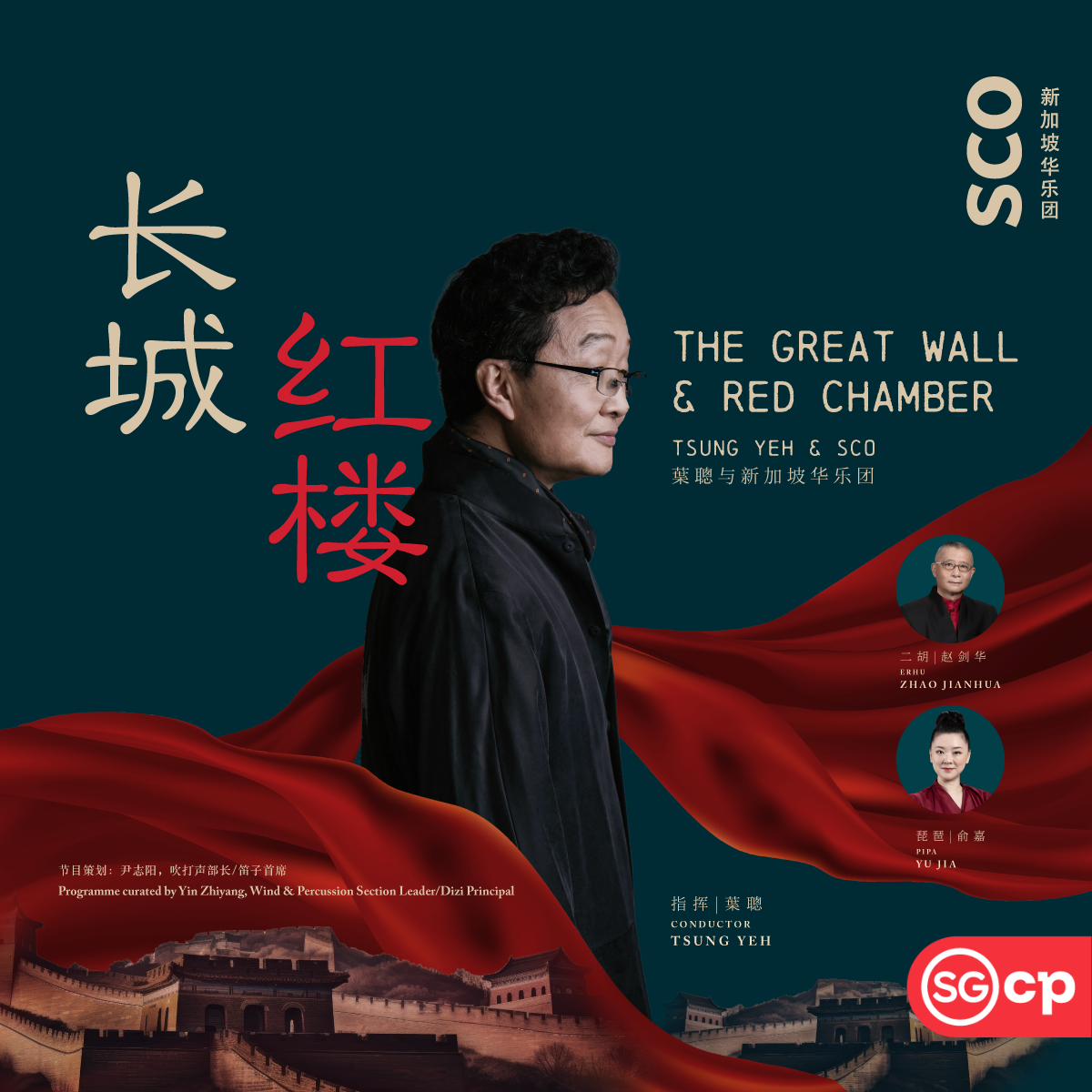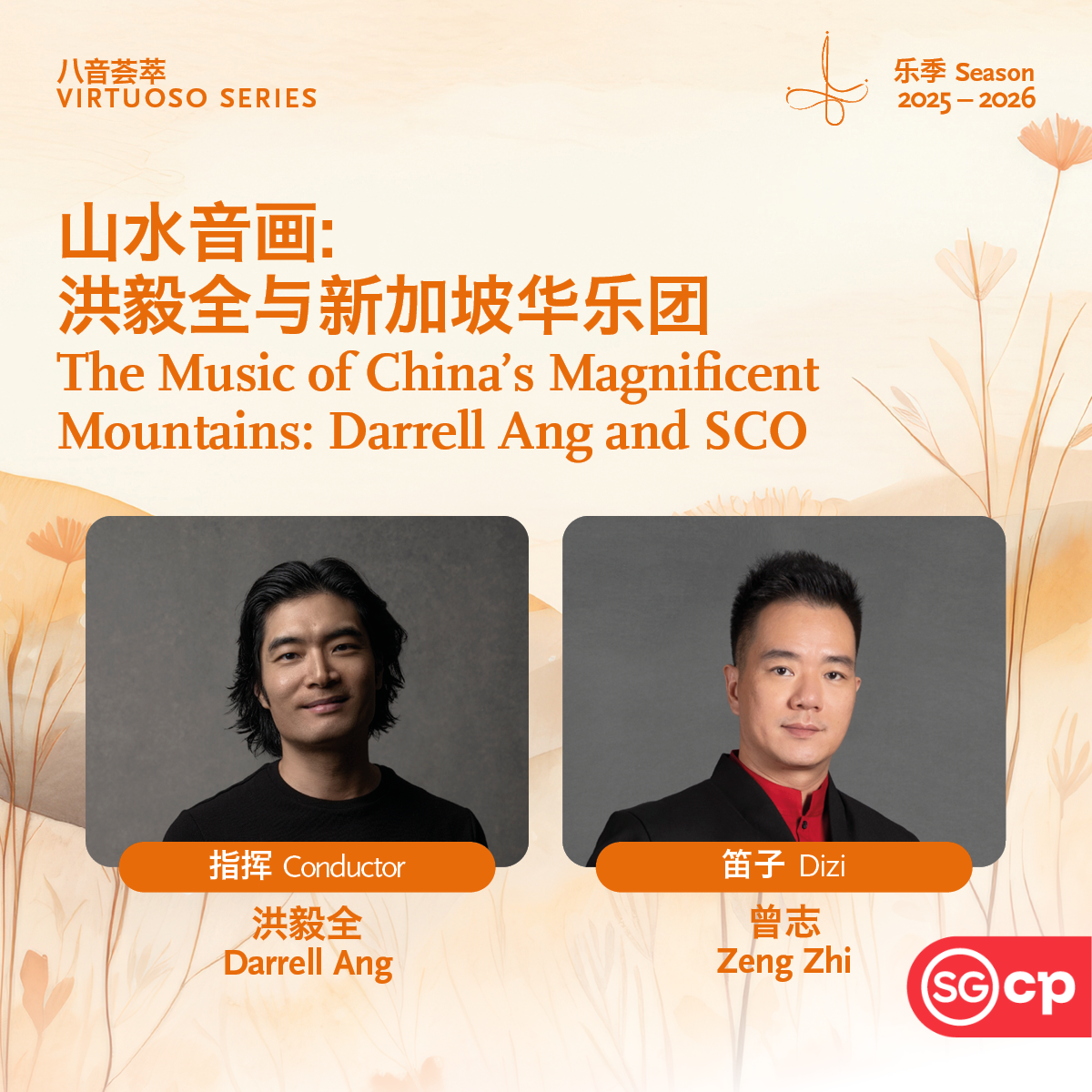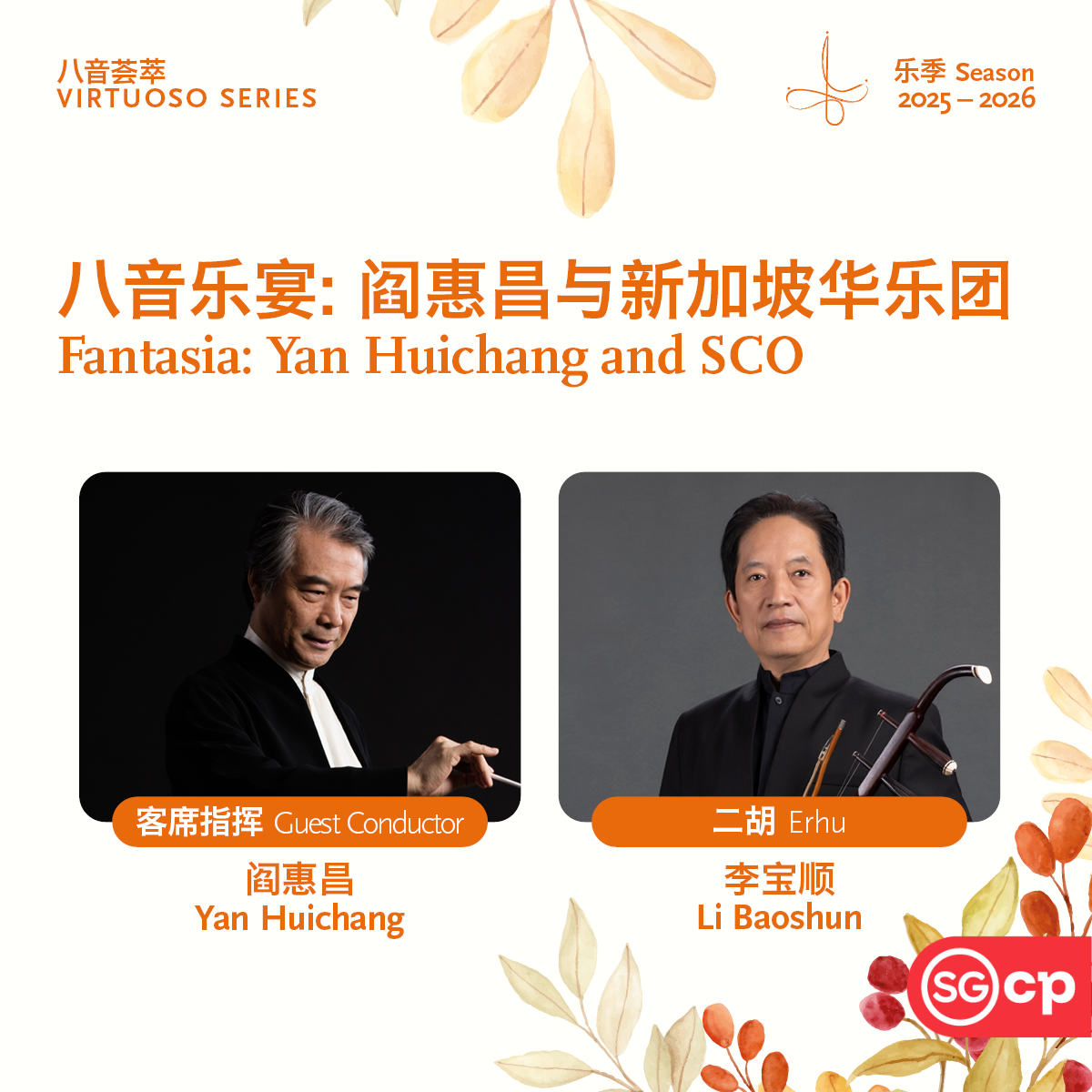By Jon Lin Chua
Chamber Charms: Virtuosic Bowed Strings is part of SCO’s chamber music series. The concert opens and closes with two pieces featuring the full bowed strings section of the SCO, while the repertoire in between are erhu solo pieces featuring Concertmaster and String Section Leader Li Baoshun as well as Erhu I Principal Zhao Jianhua. All the pieces in the concert are famous erhu classics, including three pieces by Liu Tianhua.
Known as the “Father of the Erhu,” Liu was a key figure in shaping the modern form of the instrument. Liu was a proponent of the progressive New Culture Movement of early twentieth-century China, which centred on the ideology of societal reform through democracy and science. Liu himself was proficient on Western instruments such as the piano and the violin and various brass instruments, and was also learned in Western music theory. Through extensive refinements to its structure and acoustics, he expanded the erhu’s pitch range, standardised its tuning, and broadened its acoustic capabilities. By introducing the instrument into the formal conservatory system, which had previously been dedicated to Western instruments, he revolutionised both its repertoire and pedagogy in twentieth-century China.
Liu’s well-loved learner pieces New Year’s Eve Ditty (composed in 1928) and Towards a Bright Future (composed in 1932) exemplify his innovations, showcasing the erhu’s extended pitch range while preserving the lyrical charm of traditional Chinese melodies and folk techniques. In this concert, however, both works are presented in new arrangements for Chinese bowed string ensemble, greatly broadening their expressive scope. Having been commissioned to write the arrangement of Towards a Bright Future for this concert, I took care to retain the character of the original piece, while enhancing it in terms of harmony, texture, and sonic range. While these Chinese string orchestral versions of these two beloved erhu classics depart from the original intent of highlighting the erhu itself, they remain deeply consistent with Liu’s progressive vision of expanding the expressive possibilities of traditional Chinese music.
Liu’s Hymn of Idleness (composed in 1928) is also performed on the erhu by concertmaster Li Baoshun. While not renowned for any flashy show of technical virtuosity, the work is nevertheless challenging for its sophisticated use of traditional erhu techniques. Rich in subtle melodic inflections, the piece demands refined tone and breath control, as well as deep musical sensitivity. Composed during a tranquil period in Liu’s life, it evokes a poetic, transcendent state of mind and conveys a profound serenity of spirit.
Comparable in poetic depth are Lu Xiutang’s Nostalgia (composed in 1936) and the ancient melody Farewell at Yangguan Pass, both performed here by Erhu I Principal Zhao Jianhua. In contrast to Hymn of Idleness, these two works convey profound sorrow, yet through a similarly restrained and poetic mode of expression. Performing them requires consummate control of tone and phrasing, coupled with acute interpretive sensitivity. Nostalgia is imbued with the smooth, lyrical cantabile quality commonly found in music of the Jiangsu region, the hometown of Lu, while this erhu version of Farewell at Yangguan Pass is based upon renowned Tang Dynasty poet Wang Wei’s poem Song of Weicheng, describing a melancholic parting. It was later set to music, and gained immense popularity as a guqin piece. Characterised by gliding figures that connote the timbre and style of guqin music, the erhu arrangement of Farewell at Yangguan Pass was crafted by the late master Min Huifen, whose musical legacy continues through her disciple Zhao Jianhua.
Composed in 1958 for erhu and piano, Liu Wenjin’s Ballad of Yubei is the most recent work on the program. It stands as his first major prizewinning composition, successfully combining folk music material from northern Henan (Yubei) with the formal structures and harmonies he mastered through his conservatory training. Beyond fostering instrumental innovation, twentieth-century Chinese music saw the piano become a standard collaborative instrument, a shift significantly influenced by conservatory-trained composers like Liu. The enormous popularity of his works for erhu and piano, notably Ballad of Yubei and the Sanmenxia Capriccio, was a key driver of this change and helped cement Liu Wenjin’s legacy as a foundational figure in modern erhu repertoire.
In conclusion, this concert presents a living narrative of the erhu’s artistic evolution. From Liu Tianhua’s foundational reforms that elevated the erhu to a solo instrument capable of profound expression, to Lu Xiutang’s evocative regional lyricism and Min Huifen’s delicate transposition of ancient guqin aesthetics, the programme traces a century of innovation rooted in deep cultural reverence. The inclusion of Liu Wenjin’s mid-century masterwork further illustrates how composers continued to expand the instrument’s voice through formal sophistication and cross-genre collaboration. Whether through intimate solos or enriched ensemble arrangements, each piece resonates with Liu Tianhua’ progressive vision that Chinese music could retain its soul while continually renewing its voice. Together, these works form a compelling testament to the erhu’s enduring place in both China’s heritage and its dynamic contemporary soundscape.





















